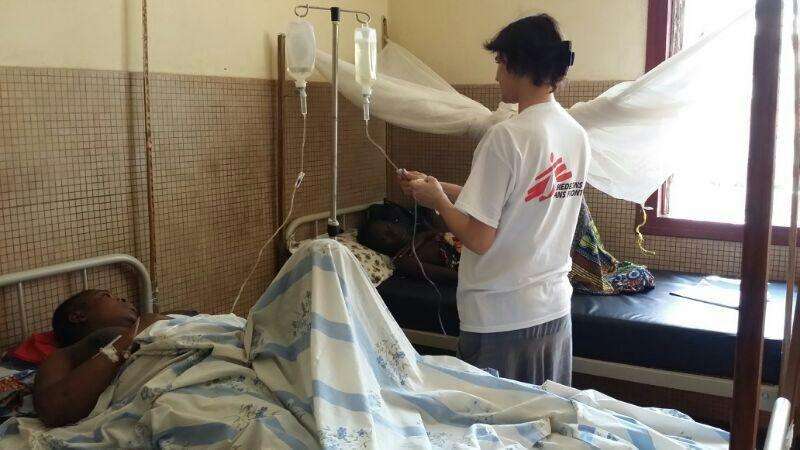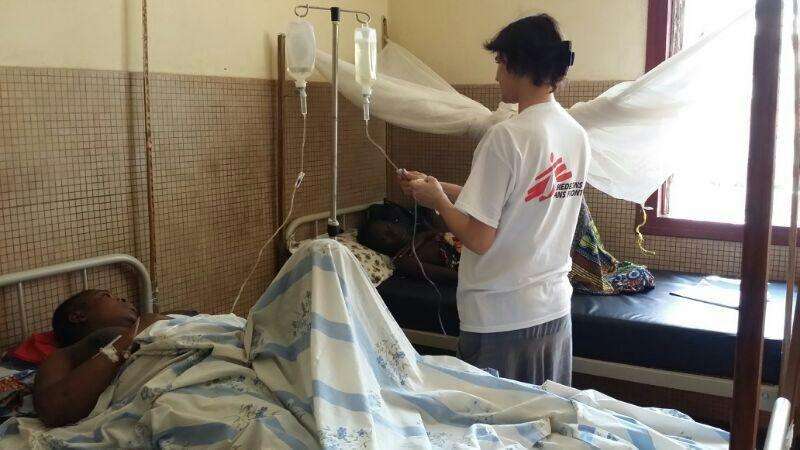On January 11, Doctors Without Borders/Médecins Sans Frontières (MSF) staff at Castor Hospital in Bangui, the capital of Central African Republic, provided emergency treatment to 15 people injured when three grenades were detonated close to the health center. At the time, dozens of local residents were seeking refuge from fighting that was raging throughout the city. A member of MSF's team was wounded as well when one grenade exploded in the hospital courtyard.
Bangui remains extremely tense and chaotic. Artillery explosions and continued fighting caused panic in several neighborhoods over this past weekend. All told, half the population of the city, an estimated 512,000 people, has been displaced by the conflict.
Ornella Bendolo, 23, was one of the wounded people admitted after the grenades detonated near the health center, which is also close to a religious compound where a displacement camp was recently established. "A car passed by and they threw a grenade inside the house," he says. "My sister, my mother, and also an eight-month-old baby were all injured."
A 16-year-old boy died as a result of his wounds. The MSF staff member injured in the blast did not require hospitalization.
During the fighting, some 50 local residents took refuge in the hospital. After the explosions—which might have been an attempt to attack the displacement camp, though this has yet to be verified—an MSF reinforcement team was sent to the hospital but was unable to gain access due to the fighting in the area. A precarious calm eventually returned a few hours later.
Joachim Sadoum, 64, is one of the few inhabitants of the Castor neighborhood who decided not to leave. “Around 3,500 people lived here, but now, after the attacks on December 5, the neighborhood is empty,” he says.
Sadoum suffered bruising on one hand and leg while fleeing the fighting last Saturday. “I was born in this neighborhood and I’d never experienced anything like this before," he says. "We never had problems until now."





